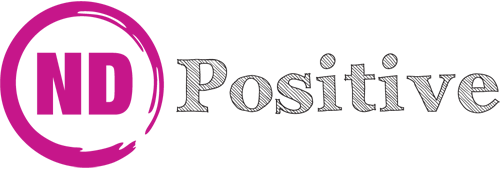Photo Credit: Amy Brathwaite
Name: Jason Blades
ND Type/s: Dyslexia
What do you do: TV Presenter
Where do you live: Wolverhampton
How do you think your neurodiversity makes you different to others around you?
I don’t think it makes me different it just makes me unique, whether people have neurodiversity or not, everybody needs to feel comfortable with who they are and shine.
What is your favourite time of the day and why?
Every time of the day because I’m alive and that’s the most important thing.
Do you find it difficult to sleep or to get going in the mornings? Do you have a morning routine to set you up for the day ahead?
Not at all – as soon as my head hits the pillow I’m out – as soon as my alarm goes off I’m up. My routine starts with some Twist yoga – 100 push ups and avocado on toast with a cuppa.
Have you ever felt isolated by your Neurodivergence?
Never.
Are there any social situations that you particularly dread or avoid? And is there an environment you thrive in?
I thrive in all environments and don’t avoid any.
Have you read a book or seen a film or a play that has made an impact on your life or your view on the world?
Yes, loads. I have never read a book but the films that have impacted me are – Malcolm X, American History X, Leon, Amelie and Once Upon a Time in America
What is the best piece of advice you’ve ever received and who was it from?
‘If one of us make it we all make it’ – from a friend I grew up with.
When you were young, what did you want to be when you were a grown-up? And what was your first Job?
I was a painter and decorator for my first job, and I never knew what I wanted to be when I grew up.
What do you do now and how did you get into it?
I am a TV presenter/community worker – TV found me, and I found community work when I volunteered at a hostel for the homeless.
Creativity and thinking differently are often credited to neurodiversity. Would you say that is true? And if yes, could you give an example?
Yes, it is true, 40% of people in the creative community have neurodiversity – that is proof that creativity thrives because of our neurodiversity.
When you feel overwhelmed or unfocused, or have lost your focus, what do you do to get back on track? Do you have any hacks, tips or do you use any apps to keep you on track during the day?
I listen to music.
How does your Neurodiversity affect new relationships? This can be professionally, socially or romantically.
It hasn’t affected mine; it has improved my relationships because it encourages communication and honesty.
What makes you truly happy?
Music, playing Vinyl.
Do you have an interesting, or unusual, fact about you – that you can share with us?
I have a pudding after every meal, including breakfast.
What has been your biggest achievement so far?
I am still achieving; I will let you know when I get there.
Do you have a Positive message about Neurodiversity message to the world? Imagine you have a £5 million advertising campaign to spend on billboards all over the world, what would you say?
Influence people you are never going to meet, take your ego out of the equation and the world will be a better place.
And finally: Where can people find out more about you? Do you have a website and/or social media pages?
People can follow me on social media or learn what I’m up to on my website.



